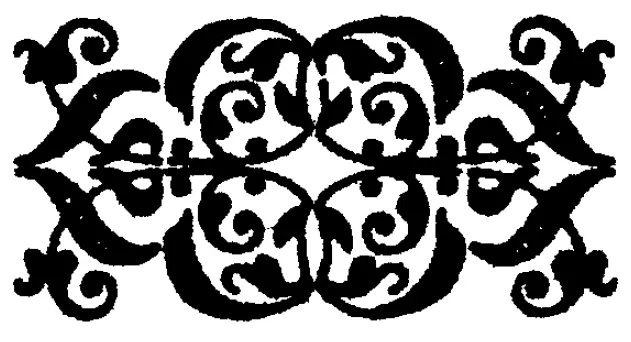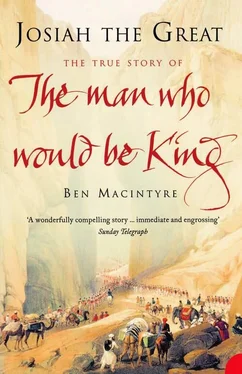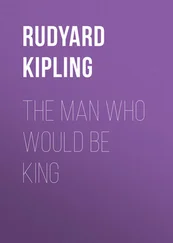I extended my search: to the Punjab, where Harlan had lived in the 1820s; to his birthplace in Pennsylvania; to San Francisco, where he died; and back to Kabul. Gradually his life began to take shape: in the official records of Maharajah Ranjit Singh of Lahore, in the memoirs and diaries of contemporary travellers and soldiers, and in the intelligence archives of imperial India. In a tiny museum in Chester County, Pennsylvania, I finally discovered Harlan’s lost voice: in an old box, buried and forgotten among the files, was a tattered manuscript handwritten in curling copperplate, a large section of Harlan’s missing autobiography, unnoticed and unread since his death, along with letters, poems and drawings.
In 1842, Harlan boasted to a newspaper reporter that he had once been the Prince of Ghor or Ghoree, a realm high in the Hindu Kush, under a secret treaty with its ruler. ‘He transferred his principality to me in feudal service, binding himself and his tribe to pay tribute for ever,’ Harlan was quoted as saying. ‘The absolute and complete possession of his government was legally conveyed according to official form, by a treaty which I have still preserved.’ This contract was assumed to be lost. Some claimed it had never existed. But there, yellow with age at the bottom of the box, was a document, written in Persian and stamped with an intricately beautiful oval seal: a treaty, 170 years old, forged between an Afghan prince and the man who would be king.

Josiah Harlan’s hunt for a crown began with a letter. A grubby, much-handled, unhappy letter that followed the young American merchant seaman from Philadelphia to Canton in China, and finally to Calcutta, the teeming capital of British power in India, in 1822. It was written by one of Harlan’s brothers, back in Chester County, Pennsylvania, who had entrusted it to another seaman, bound for the East, in the hope that the bad news might reach Josiah before he set sail for home. After many months, the dog-eared document caught up with Harlan in Calcutta: he read it, burned it, swore that he would never return to America, and set off alone on an eighteen-year odyssey into the heart of Central Asia.
That was the way Harlan remembered it. A Byronic act of impulse prompted by a broken promise and an injured heart; but in truth his journey had started many years earlier. It began in the avid imagination of a schoolboy, in the dockside stories of the seamen, in a newly-born American empire of limitless promise and adventure. It began in the mind of a youth who was born a humble Quaker, but imagined himself an ancient king.
Joshua and Sarah Harlan, Harlan’s parents, were prosperous, pious people of quiet pacifism and deep faith. A merchant broker, Joshua had made sufficient money in the great port of Philadelphia to buy a small farm in Newlin Township, Chester County, where he had raised a large family. There had been Harlans in the county since 1687, when one Michael Harlan, from Durham in England, had emigrated like so many Quakers to the New World. Joshua and Sarah were plain of dress and speech, rejected the trappings of worship, never swore an oath or drank a drop of alcohol, and passionately opposed war. They were, therefore, somewhat unlikely candidates to produce a son who would become an Oriental potentate with his own army and a taste for exotic royal costumes.
Josiah Harlan arrived, with little fanfare, on 12 June 1799, the latest addition to a brood that already included Ann, James, Charles, Sarah, Mary, Joshua, William and Richard. Edward was born four years later. We know little of Josiah’s earliest years, save that they were noisy, joyful and scholarly, for the Quaker education system was excellent. Josiah read widely and voraciously: Shakespeare and Burke, Pliny and Plato, histories and romances, poetry and politics, treatises on natural history, physics, and chemistry.
Josiah was just thirteen when his mother died, worn out by childbirth. Sarah bequeathed an estate of $2,000 to her three daughters, but left nothing to her seven sons, who were expected to make their own fortunes – which they did in ways that show Josiah was not the only Harlan anxious to explore the world beyond Chester County. Charles departed for South America as soon as he was old enough to leave home, and was never seen again; James went to sea and died aboard an English man-of-war at the age of twenty-seven; and Richard wandered the East before becoming a celebrated anatomist (his hobby was studying human crania, and he finally amassed 275 of them, the largest collection in America). While the sons of the family were off collecting crowns of gold and bone and dying in exotic locations, the daughters remained at home: all three of Josiah’s sisters would die spinsters in Chester County.
Motherless, Josiah Harlan plunged deeper into a world of imagination and learning. At the age of fifteen, one contemporary recorded, he ‘amused himself with reading medical books and the history of Plutarch, as also the inspired Prophets’. A natural linguist, he read Latin and Greek, and spoke French fluently. He could put his mind and hand to anything, whether or not the results were worth it: his poetry was poor, and his watercolours were worse. Botany became a passion, and his writings overflow with observations on plants and flowers, wild and cultivated. His prose style, particularly at moments of emotion or elation, tended towards the flowery.
Above all, he steeped himself in Greek and Roman history. Many years later, an educated traveller who came across Harlan in the wilds of the Punjab found him immersed in classical literature, ‘in the which study I found him wonderfully well versed’. Harlan’s obsession with Alexander the Great dates from his earliest boyhood. He could recite long passages from Plutarch’s The Age of Alexander, and he carried a copy of The History of Alexander by Quintus Curtius Rufus throughout his travels. Alexander’s conquests in Persia, Afghanistan and India, were an inspiration to the young man growing up among the placid green fields of Pennsylvania, and he idealised the Macedonian conqueror: ‘In seven years Alexander performed feats that have consecrated his memory amongst the benefactors of mankind, and impressed the stamp of civilization on the face of the known world,’ he wrote. Harlan would follow Alexander to the uncharted corners of Afghanistan, and back again.
A young American in a young America, Josiah Harlan was impatient, ambitious and utterly convinced of his own abilities: some considered him arrogant, others thought him charming; no one ever found him boring. By the age of eighteen he was over six feet tall, a striking, muscular, raw-boned and handsome young man with a long face, high forehead and somewhat unsettling dark hazel eyes. He might have been the embodiment of a growing nation in young adulthood, as described by Henry Adams: ‘Stripped for the hardest work, every muscle firm and elastic, every ounce of brain ready for use, and not a trace of superfluous flesh on his nervous and supple body, the American stood in the world a new order of man.’
Harlan grew up in the America of Thomas Jefferson, a place of infinite space and possibility. Explorers like Meriwether Lewis and William Clark had started to open up the western two thirds of North America, but vast areas of the globe remained undiscovered and unmapped: the interior of Africa, Australia, Antarctica and, somewhere beyond the borders of India, the mysteries of Central Asia and China. The very breadth of the American continent inspired faith in the potential of a world to be discovered. Walt Whitman rejoiced in the scale of the American horizon:
Читать дальше













